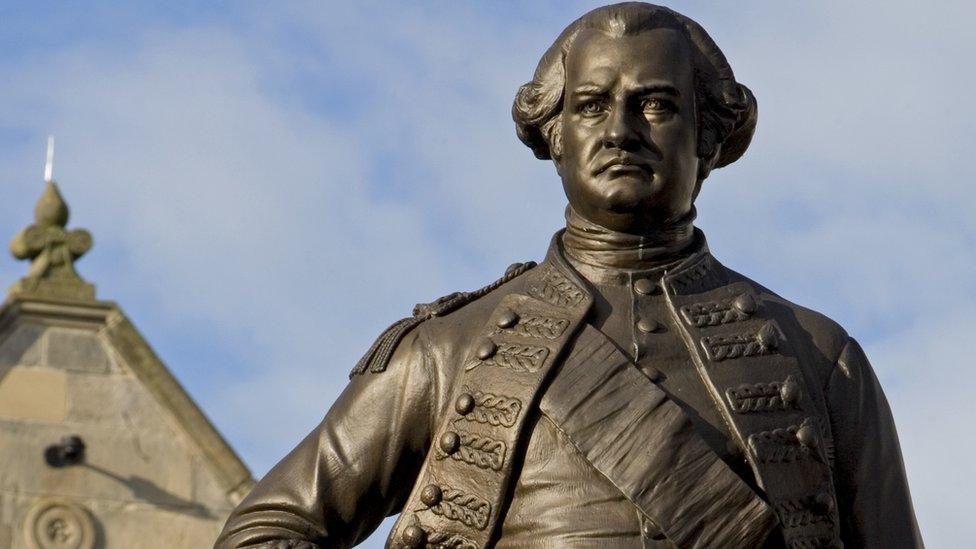Clive of India: 'Red tape does not prevent Shrewsbury statue changes'
- Published
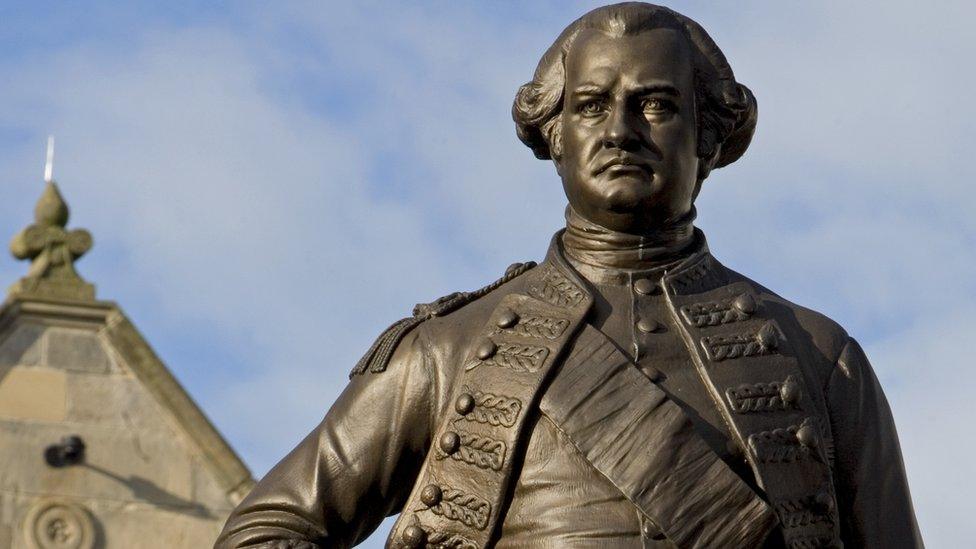
The monument to Clive of India has stood in Shrewsbury since 1860
A statue's listed status does not prevent the inclusion of an information board explaining its history, despite claims to the contrary.
Calls have been made for the removal of the statue of Clive of India in Shrewsbury.
Shropshire Council members voted to take no action over the statue, claiming red tape around its listed status made any changes difficult.
But Historic England said the council had more freedom than had been claimed.
Although not directly linked to slavery, Robert Clive is widely credited with engineering British colonial rule in India and has been linked by some historians to the Bengal Famine of 1770 which saw millions die.
More than 23,000 people have signed petitions calling for the statue to go, while a petition calling for it to stay has attracted more than 9,500 signatures.
Those campaigners said removing it would "not change history nor help us learn from it". A similar view was expressed by historian Dr Manu Sehgal in an interview with the BBC last month.
During the vote last week, council deputy leader Steve Charmley said Historic England would need to be consulted due to the statue's listed status, while an information board on Clive's life would not be allowed for the same reason.
But Historic England said: "Listed status does not prevent interpretation of statues and with Grade II listed statues it is unlikely to need our input.
"We advocate and welcome reinterpretation in situ, rather than removal of contested statues."
David Parton, who created one of two petitions calling for Clive's statue to go, said Shropshire Council's "excuses" for not taking action were "feeble".
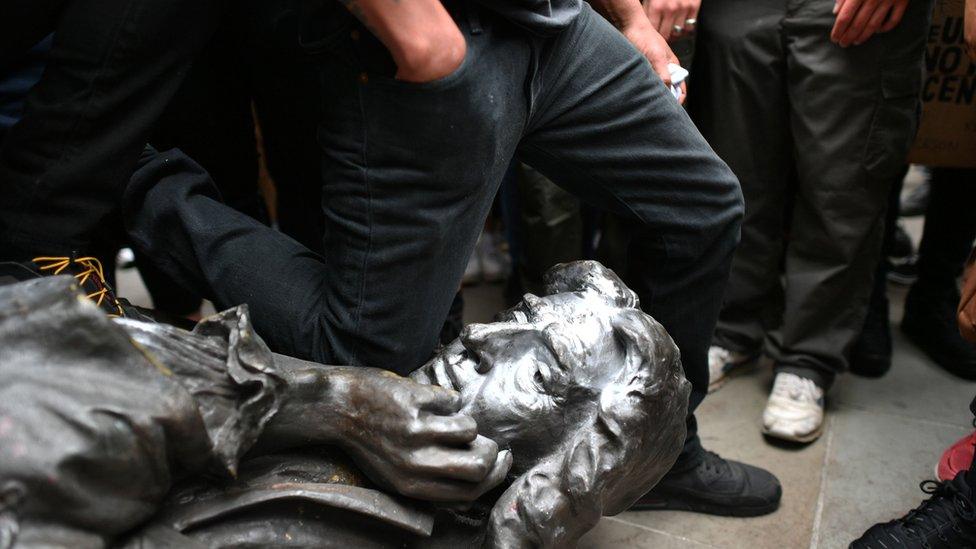
A number of statues, including that of Edward Colston, have been targeted during anti-racism protests
In a statement Mr Charmley said: "We believe we should not erase controversial history but, rather than celebrate and glorify such people and events, find appropriate ways to mark and learn from them."
He said Shropshire Museums are consulting to "find the best way to interpret both Clive's legacy and our nation's colonial past".

Follow BBC West Midlands on Facebook, external, Twitter, external and Instagram, external. Send your story ideas to: newsonline.westmidlands@bbc.co.uk , external
- Published16 July 2020

- Published9 July 2020

- Published8 July 2020
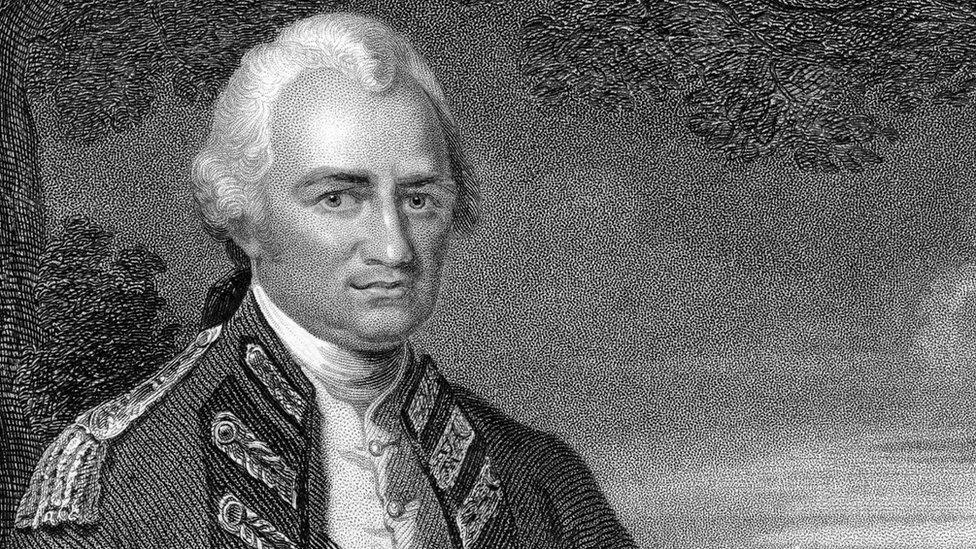
- Published3 July 2020
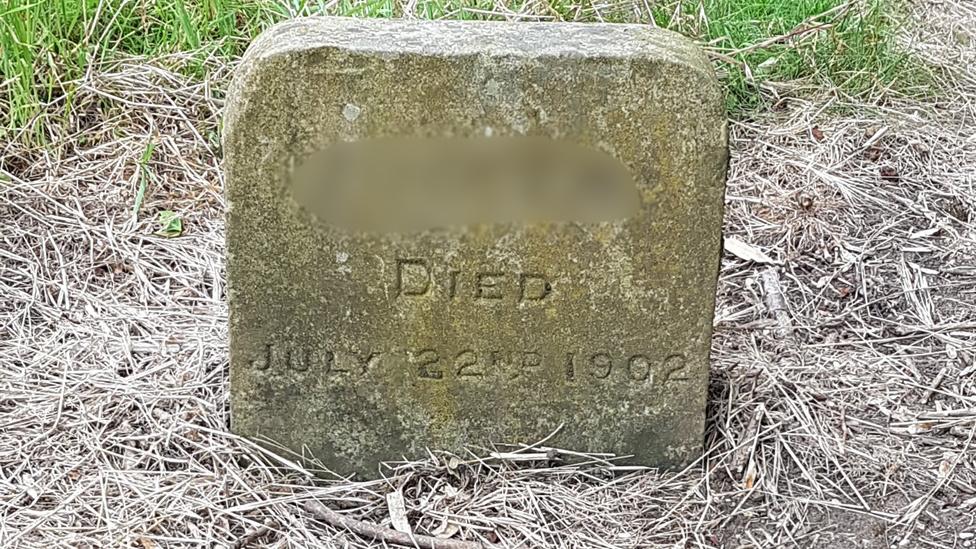
- Published9 June 2020
